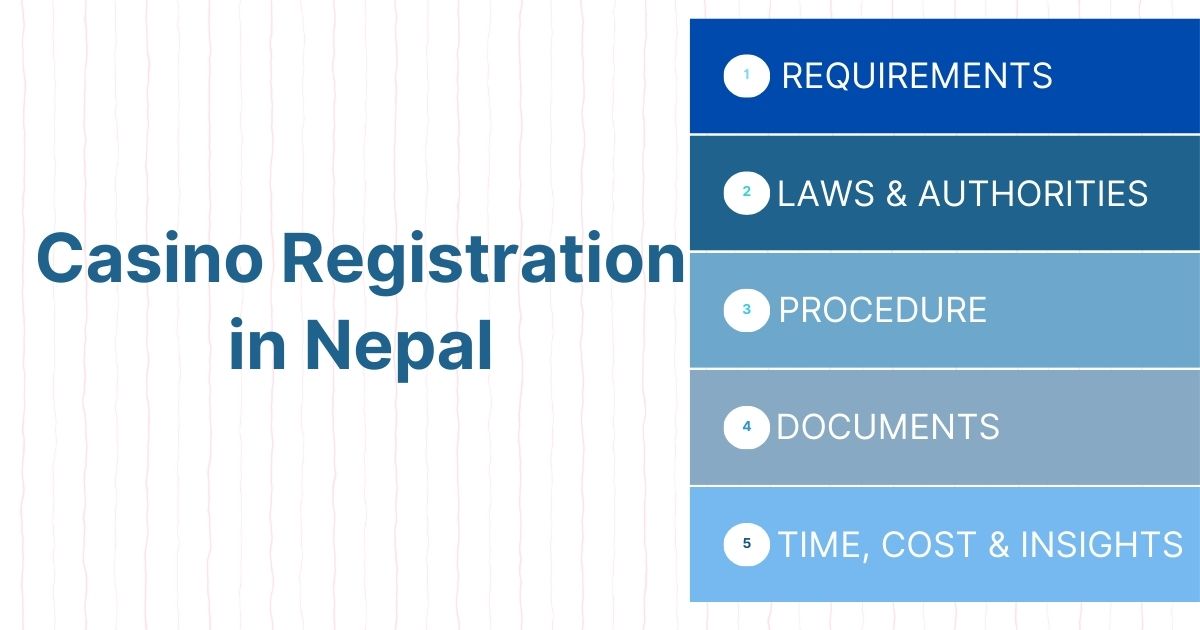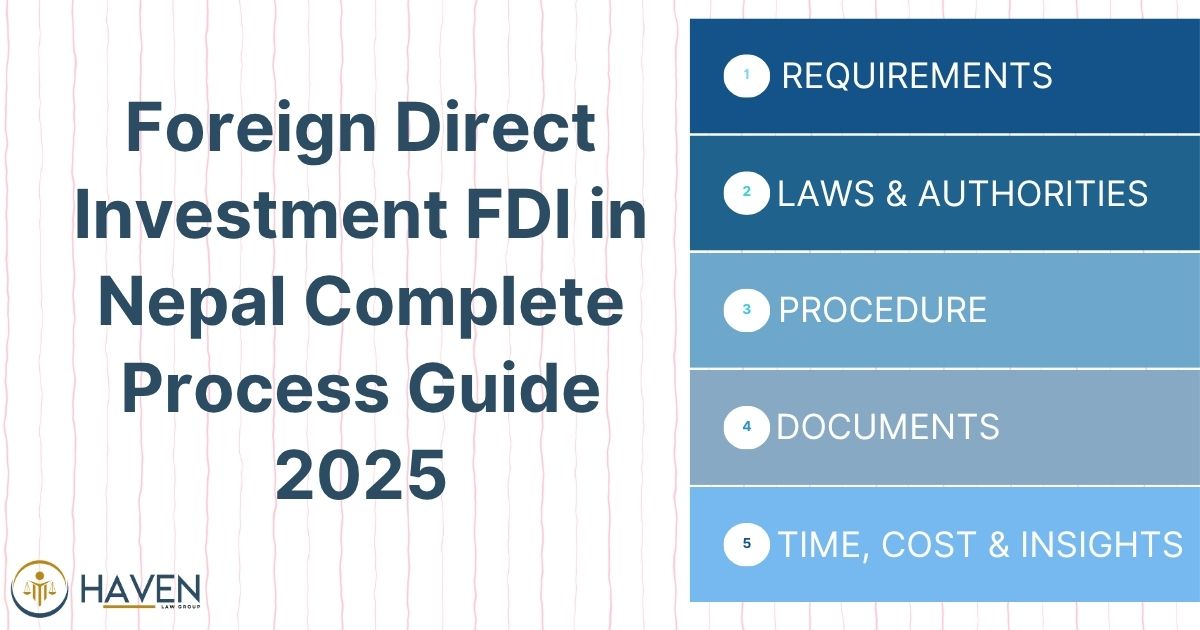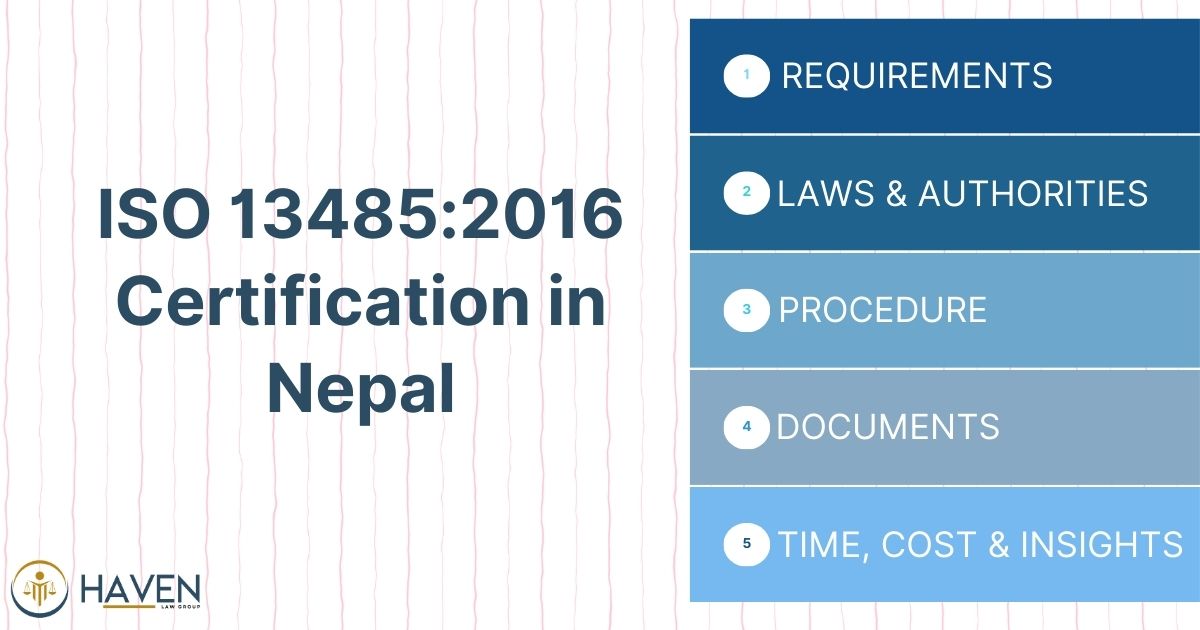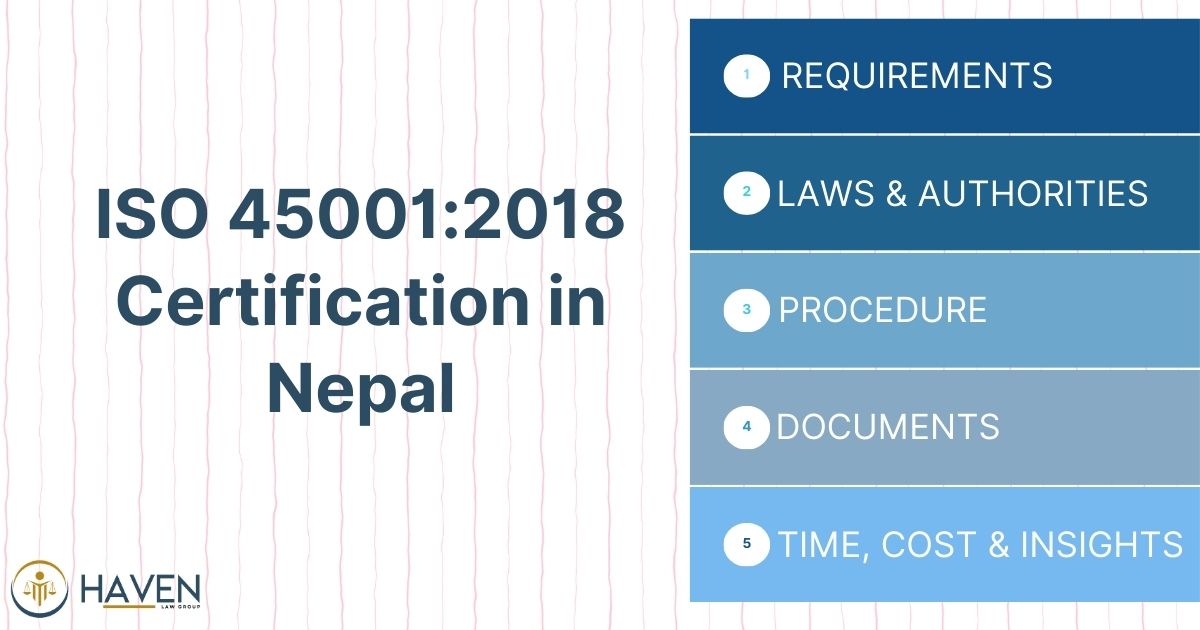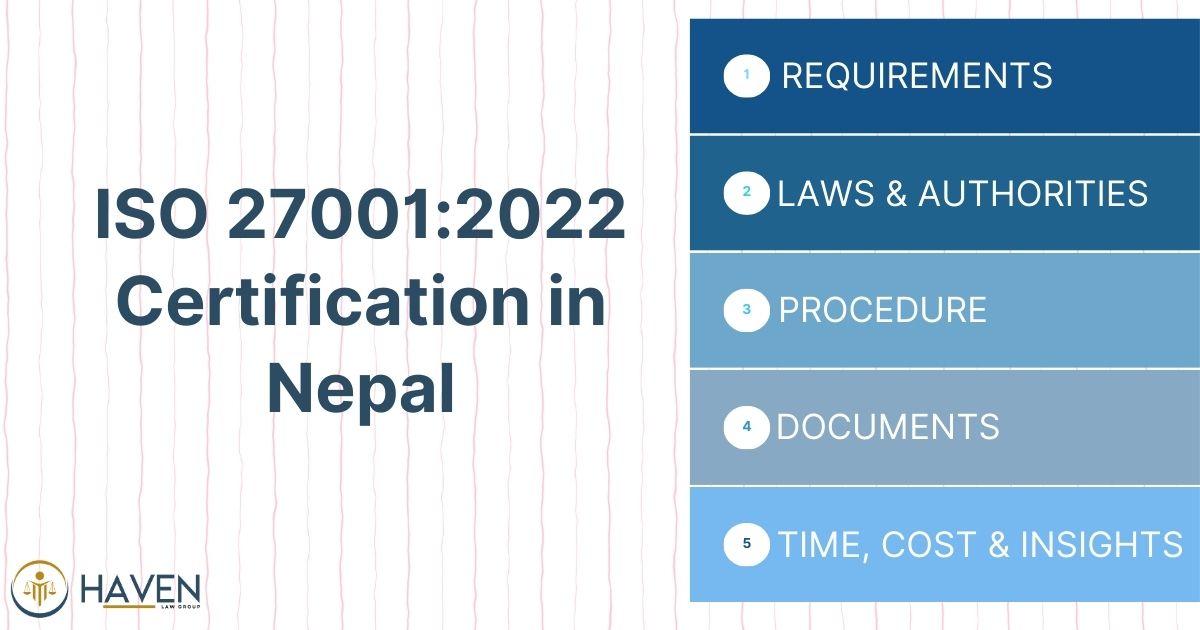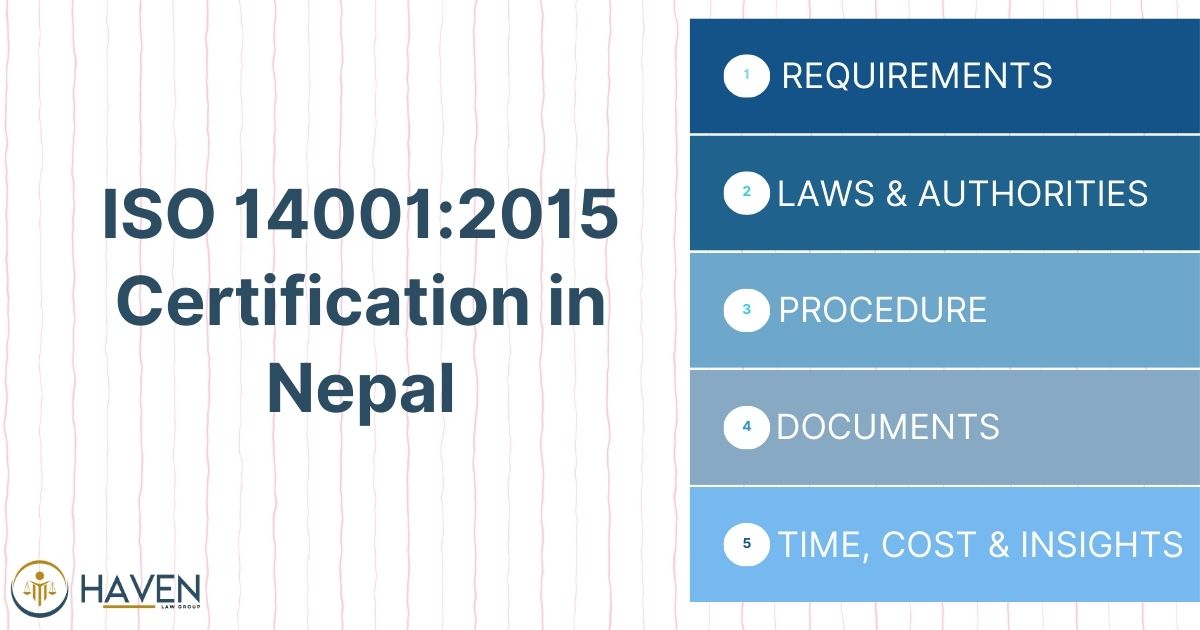Introduction
Goods and Services Tax (GST) registration is a fundamental requirement for companies operating in Nepal. This process involves obtaining a unique identification number from the government, allowing businesses to collect and remit taxes on their transactions. GST registration is essential for companies to comply with tax regulations, participate in the formal economy, and contribute to the nation’s revenue. This article provides a comprehensive guide on GST registration for companies in Nepal, covering eligibility criteria, required documents, registration steps, compliance obligations, and associated benefits.
What is GST Registration?
GST registration is the process of obtaining a Goods and Services Tax Identification Number (GSTIN) from the Inland Revenue Department of Nepal. This unique 15-digit number serves as a company’s identity for tax purposes and is mandatory for businesses that meet certain criteria. GST registration enables companies to collect taxes on behalf of the government, claim input tax credits, and participate in the formal economy. The GSTIN is required for all business transactions, including issuing invoices, filing tax returns, and claiming tax refunds. GST registration is a one-time process that remains valid unless cancelled or suspended by the tax authorities.
Importance of GST for Companies
GST plays a crucial role in the financial operations of companies in Nepal. It streamlines the tax system by replacing multiple indirect taxes with a single, unified tax structure. For companies, GST registration offers several advantages:
- Legal compliance: GST registration ensures that companies operate within the legal framework of Nepal’s tax system.
- Input tax credit: Registered companies can claim input tax credits on their purchases, reducing overall tax liability.
- Expanded market access: GST registration allows companies to conduct business with other registered entities across Nepal.
- Enhanced credibility: A valid GSTIN enhances a company’s credibility in the eyes of customers, suppliers, and financial institutions.
- Simplified tax procedures: GST consolidates multiple taxes, simplifying compliance and reducing administrative burden.
- Transparency: The GST system promotes transparency in business transactions, reducing the scope for tax evasion.
Eligibility for GST Registration
In Nepal, the eligibility criteria for GST registration are determined by the Inland Revenue Department. Companies must register for GST if they meet any of the following conditions:
- Annual turnover exceeds NPR 5 million for goods or NPR 2 million for services
- Engaged in import or export of goods or services
- Supplying goods or services through electronic commerce operators
- Voluntarily choosing to register, regardless of turnover
Certain businesses are exempt from mandatory GST registration, including:
- Agricultural activities
- Supply of goods or services not subject to GST
- Businesses operating in Special Economic Zones (SEZs)
It’s important to note that even if a company is not required to register for GST, voluntary registration can still be beneficial for claiming input tax credits and participating in the formal economy.
Documents Needed for GST Registration
To register for GST in Nepal, companies must prepare and submit the following documents:
- Company Registration Certificate
- PAN (Permanent Account Number) Certificate
- Memorandum of Association and Articles of Association
- Proof of business address (utility bill, rent agreement, or property ownership document)
- Bank account details
- Digital photographs and signatures of authorized signatories
- Identity proof of directors/partners (citizenship certificate or passport)
- Letter of Authorization for the person applying on behalf of the company
- Tax clearance certificate from the previous fiscal year
- VAT registration certificate (if previously registered)
- Proof of business transactions (invoices, purchase orders, etc.)
- Cancelled cheque of the company’s bank account
Ensuring all documents are accurate and up-to-date will expedite the GST registration process and minimize the risk of application rejection.
Steps to Register for GST Online
The GST registration process in Nepal can be completed online through the Inland Revenue Department’s official website. Follow these steps to register your company for GST:
- Visit the official IRD website (www.ird.gov.np)
- Click on the “GST Registration” or “New Registration” option
- Select “Company” as the type of taxpayer
- Fill in the required details in the online application form
- Upload scanned copies of all necessary documents
- Verify the information entered and submit the application
- Note down the Application Reference Number (ARN) for future reference
- Wait for the application to be processed by the tax authorities
- Respond promptly to any queries or additional document requests
- Receive the GST registration certificate with your unique GSTIN
The online registration process simplifies the application procedure and reduces processing time. However, ensure all information provided is accurate to avoid delays or rejection of the application.
Timeline for GST Registration Approval
The timeline for GST registration approval in Nepal typically ranges from 3 to 7 working days, depending on the completeness and accuracy of the application. The Inland Revenue Department aims to process applications efficiently, but delays may occur if:
- The application form is incomplete or contains errors
- Required documents are missing or unclear
- Additional verification is needed for certain information
- There is a high volume of applications during peak periods
To expedite the approval process:
- Double-check all information before submission
- Ensure all required documents are clear and legible
- Respond promptly to any queries from the tax authorities
- Consider seeking assistance from a GST advisor for complex cases
Once approved, the GST registration certificate is issued electronically, and companies can begin using their GSTIN for business transactions immediately.
Cost and Government Fees Involved
GST registration in Nepal involves certain costs and government fees. While the online registration process itself is free, companies may incur the following expenses:
- Application processing fee: NPR 1,000 (non-refundable)
- GST registration certificate fee: NPR 500
- Digital Signature Certificate (DSC) cost: Varies by provider (approximately NPR 1,500 – 3,000)
- Professional fees: If using the services of a GST advisor or chartered accountant
Additional costs may include:
- Notarization of documents: NPR 500 – 1,000 per document
- Translation fees for documents not in Nepali or English
- Bank charges for opening a separate GST account (if required)
Companies should budget for these expenses when planning their GST registration. It’s important to note that these fees are subject to change, and companies should verify the current rates with the Inland Revenue Department or a qualified tax professional.
Checklist for GST Registration
To ensure a smooth GST registration process, companies should use the following checklist:
- Verify eligibility for GST registration
- Gather all required documents
- Ensure documents are up-to-date and properly attested
- Obtain Digital Signature Certificate (DSC) for authorized signatories
- Prepare clear scanned copies of all documents
- Verify bank account details and obtain a cancelled cheque
- Check the company’s PAN and other registration details for accuracy
- Identify and authorize a person to handle the registration process
- Review the online application form for completeness and accuracy
- Keep track of the Application Reference Number (ARN)
- Prepare for potential queries or additional document requests
- Plan for post-registration compliance requirements
Following this checklist helps companies organize their registration process and minimizes the risk of delays or rejections.
Compliance Obligations After Registration
Once registered for GST through Company Registration in Nepal , companies in Nepal have ongoing compliance obligations:
- File regular GST returns (monthly, quarterly, or annually, depending on turnover)
- Maintain accurate books of accounts and financial records
- Issue GST-compliant invoices for all transactions
- Collect and remit GST to the government within specified timelines
- Claim input tax credits on eligible purchases
- Respond to notices or queries from tax authorities promptly
- Update registration details in case of any changes to the business
- Conduct annual GST audits (for companies with turnover above NPR 50 million)
- File annual returns and reconciliation statements
- Preserve all financial records and documents for at least 6 years
Failure to meet these compliance obligations can result in penalties, interest charges, and potential legal consequences. Companies should establish robust internal processes to ensure ongoing GST compliance.
Laws Governing GST in Companies
GST in Nepal is governed by several laws and regulations:
- Value Added Tax Act, 2052 (1996)
- Value Added Tax Rules, 2053 (1997)
- Income Tax Act, 2058 (2002)
- Income Tax Rules, 2059 (2002)
- Finance Act (updated annually)
These laws outline the framework for GST implementation, including:
- Registration requirements and procedures
- Tax rates and exemptions
- Input tax credit mechanisms
- Filing and payment schedules
- Penalties for non-compliance
- Audit and assessment procedures
Companies must stay informed about updates to these laws and any circulars or notifications issued by the Inland Revenue Department to ensure ongoing compliance with GST regulations.
Penalties for Non-Compliance with GST
Non-compliance with GST regulations in Nepal can result in various penalties:
- Late registration: Fine of NPR 10,000 plus interest on unpaid taxes
- Failure to file returns: NPR 5,000 per return or 0.1% of tax due, whichever is higher
- Late payment of tax: 15% per annum interest on unpaid amount
- Incorrect or false returns: 100% of the tax evaded or attempted to be evaded
- Failure to issue invoices: NPR 5,000 per instance
- Non-maintenance of records: NPR 5,000 to NPR 50,000, depending on turnover
Repeated non-compliance can lead to:
- Suspension or cancellation of GST registration
- Prosecution and potential imprisonment for serious offenses
- Restrictions on business operations and bank accounts
Companies should prioritize GST compliance to avoid these penalties and maintain good standing with tax authorities.
Benefits of GST for Businesses
GST registration offers numerous benefits for companies in Nepal:
- Input tax credit: Ability to claim tax credits on purchases, reducing overall tax liability
- Expanded market access: Opportunity to conduct business with other GST-registered entities
- Improved cash flow: Streamlined tax system can lead to better cash flow management
- Enhanced credibility: GST registration enhances business reputation and trustworthiness
- Simplified compliance: Single tax system reduces complexity in tax filing and payments
- Reduced tax cascading: Elimination of tax-on-tax effect leads to cost savings
- Competitive advantage: GST-registered businesses often preferred by customers and suppliers
- Access to government contracts: Many government tenders require GST registration
- Easier interstate trade: Simplified tax structure facilitates business across Nepal
- Better record-keeping: GST compliance encourages improved financial management practices
These benefits contribute to overall business growth and efficiency, making GST registration a valuable asset for companies in Nepal.
Role of GST Advisors
GST advisors play a crucial role in helping companies navigate the complexities of GST registration and compliance:
- Assessing eligibility and advising on registration requirements
- Assisting with document preparation and application submission
- Providing guidance on GST rates and exemptions applicable to specific industries
- Helping set up accounting systems for GST compliance
- Advising on input tax credit claims and utilization
- Assisting with GST return filing and reconciliation
- Representing companies during GST audits or assessments
- Keeping businesses updated on changes in GST laws and regulations
- Providing training to staff on GST-related processes
- Offering strategic advice on tax planning and optimization
While not mandatory, engaging a GST advisor can be beneficial, especially for companies with complex business structures or those new to the GST system.
Common Mistakes to Avoid During Registration
Companies should be aware of and avoid these common mistakes during GST registration:
- Providing incorrect or incomplete information in the application form
- Failing to upload all required documents
- Neglecting to obtain proper authorization for the person handling registration
- Misclassifying goods or services under incorrect HSN/SAC codes
- Underestimating turnover to avoid registration (if eligible)
- Failing to activate the Digital Signature Certificate before application
- Ignoring notices or queries from tax authorities during the registration process
- Rushing through the application without thorough review
- Failing to update registration details when business information changes
- Neglecting to cancel old VAT registration (if applicable) after obtaining GST registration
- Assuming voluntary registration is not beneficial for small businesses
- Failing to plan for post-registration compliance requirements
Avoiding these mistakes can help ensure a smooth GST registration process and prevent future compliance issues.
FAQs
1. What is GST?
GST (Goods and Services Tax) is a comprehensive indirect tax levied on the supply of goods and services in Nepal. It replaces multiple indirect taxes with a single, unified tax structure, simplifying the taxation process for businesses and consumers alike.
2. Is GST registration mandatory for all companies?
GST registration is mandatory for companies in Nepal that meet certain criteria, such as having an annual turnover exceeding NPR 5 million for goods or NPR 2 million for services, or engaging in import/export activities. However, some businesses may be exempt, and others can register voluntarily even if not mandated.
3. How long does GST registration take?
The GST registration process in Nepal typically takes 3 to 7 working days from the date of application submission. This timeline assumes that all required documents are provided accurately and completely. Complex cases or applications requiring additional verification may take longer.
4. What documents are required for GST?
Key documents required for GST registration include the Company Registration Certificate, PAN Certificate, Memorandum and Articles of Association, proof of business address, bank account details, and identity proofs of directors/partners. A comprehensive list of required documents is provided in the “Documents Needed for GST Registration” section of this article.
5. Are there fees for GST registration?
Yes, there are fees associated with GST registration in Nepal. These include an application processing fee of NPR 1,000 and a GST registration certificate fee of NPR 500. Additional costs may include obtaining a Digital Signature Certificate and potential professional fees if using the services of a GST advisor.
What is GST registration and why is it mandatory for companies?
GST registration is the process of obtaining a unique identification number from tax authorities to collect and pay GST. It’s mandatory for companies to ensure proper tax compliance and participate in the GST system.
Who is required to register for GST as a company?
Companies with annual turnover exceeding Rs. 20 lakhs (Rs. 10 lakhs for special category states) must register for GST. Certain businesses like e-commerce operators need to register regardless of turnover.
What documents are needed for GST registration for a company?
Key documents for company GST registration include PAN card, address proof, bank account details, company incorporation certificate, and identity proof of authorized signatories. Additional sector-specific documents may be required.
How do I apply for GST registration online as a company?
To apply online, visit the GST portal, select “New Registration,” choose “Regular taxpayer,” fill the application form, upload required documents, and submit. You’ll receive a temporary reference number for tracking.
What is the process and timeline for GST registration approval?
After application submission, tax officers verify details and documents. If approved, GST registration certificate is issued within 3-7 working days. Additional clarifications may extend the timeline.
Can a company operate without GST registration?
Operating without GST registration when required is illegal. Companies must register if they meet turnover thresholds or fall under mandatory categories. Non-compliance can result in penalties and legal consequences.


